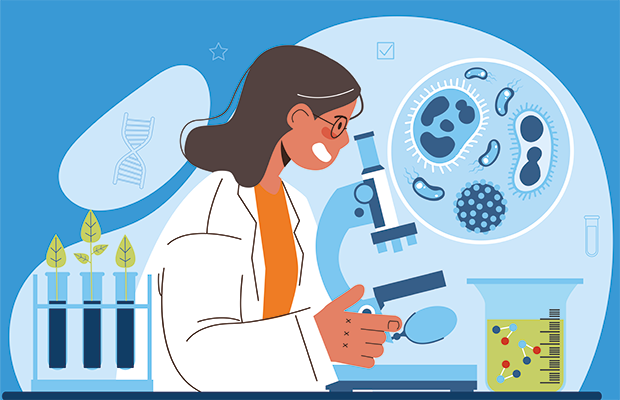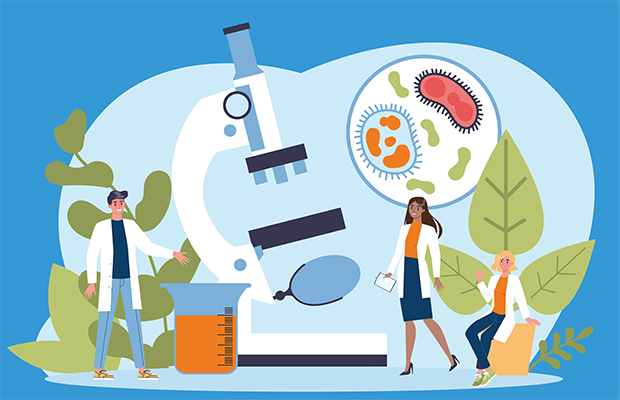This discussion is now closed.
- A-level Exam Discussions 2024
- GCSE Exam Discussions 2024
- OCR A Level Classical Civilisation Paper 3 (H408/31-34) - 3rd June 2024 [Exam Chat]
- GCSE Biology Study Group 2022-2023
- A-level Biology Study Group 2022-2023
- A Level Exam Discussions 2023
- GCSE Exam Discussions 2023
- School is killing me - Y11 "GYG" 2022
- OCR A-LEVEL PSYCHOLOGY PAPER 3 (H567/03) - 3rd June [Exam Chat]
- OCR A-Level Biology A Paper 2 (H420/02) - 14th June 2024 [Exam Chat]
- Over 500 questions on AQA Bio Unit 4 + Current Spec and old Spec papers + MS!
- OCR A-Level Biology A Paper 1 (H420/01) - 5th June 2024 [Exam Chat]
- AS and A level urgent help & advice
- A level mini tests
- Help! How can I improve ?
- Self-teaching Chemistry A-level (as a private candidate)?
- OCR A-Level Biology A Paper 3 (H420/03) - 19th June 2024 [Exam Chat]
- my a-level journey 🧸♡🍪
- GRG 0: Intro
- burnt out for paper 2s
OCR Biology F212 Revision [3rd June 2013] (Now Closed)
Scroll to see replies
plants
 like national parks etc
like national parks etcThat's what I mean, so would it be the opposite then for low biodiversity i.e. you would just build on it because there's nothing really special about it that's worth preserving?
plants
seeds take up less room so you can store more and they are easier/cheaper t transport.
also less susceptible to disease and stay viable longer
I swear DNA replication has nothing to do with RNA
plants
Seeds don't take up as much space when you store them and can be stored in much larger numbers than plants, and remain viable for longer periods of time.
yes you're right RNA is in protein synthesis which was already touching on in jan 2013 so i doubt it'd come up again
Yes you're correct! DNA has nothing to do with RNA. RNA is involved in proteinsynthesis
 I think....
I think....Enzymes
Proteins
Malaria
T and B cells
Insecticide resistance
Biological classification
Conserving biodiversity
(Maybe the reducing sugar test as the experiment)
secrete enzymes onto the food, enzymes hydrolyse the food to break it up, the microorganism then takes in the nutrients and releases toxins onto the food.
Don't think you really need to know the details. Mainly just that fungi secrete extracellular enzymes onto food, this is why they are saprotrophic.
Posted from TSR Mobile
Proteins
Malaria
T and B cells
Insecticide resistance
Biological classification
Conserving biodiversity
(Maybe the reducing sugar test as the experiment)
Change enzymes to DNA and that wouldn't be too bad an exam haha.

or is that just because of mutations, so different antigens?
-Bacteria secret enzymes which hydrolysis/break down molecules. So, proteins into amino acids, carbohydrates into glucose, triglycerides into fatty acids, etc, etc.
-Bacteria also secrete waste products and toxins which change the appearance, taste, smell and texture of food.
I learnt it as bacteria but I'm pretty sure you could just change it to microorganisms and it would be the same. :-)
- Effect of pH on enzymes
- Inhibitors
- Adaptions (different types etc)
- Darwin's observations
- Why is biodiversity important
- Effects of CO
- Protein synthesis (long question)
- Emulsion test
- Cellulose maybe
- Preventing food spoilage
Just my ideas

emulsion test is highly unlikely to come up it was in the January 2013 exam
also less susceptible to disease and stay viable longer
Yeah full marks (2)
Yeah full marks (2)
Pathogens don't take nutrition from the host similar to viruses
Parasites live on/in the host and take nutrients whilst harming the host
Yeah but pathogens DO take nutrition from the host...it says in the textbook on page 160 under ''pathogens''
or is that just because of mutations, so different antigens?
I think so.
Memory cells will eventually leave the blood so that's why you need a tetanus jab every ten years.
I reckon you'd talk about mutations if you were talking about why everyone can't be given immunity to the influenza virus - seen as it mutates every year.
Related discussions
- A-level Exam Discussions 2024
- GCSE Exam Discussions 2024
- OCR A Level Classical Civilisation Paper 3 (H408/31-34) - 3rd June 2024 [Exam Chat]
- GCSE Biology Study Group 2022-2023
- A-level Biology Study Group 2022-2023
- A Level Exam Discussions 2023
- GCSE Exam Discussions 2023
- School is killing me - Y11 "GYG" 2022
- OCR A-LEVEL PSYCHOLOGY PAPER 3 (H567/03) - 3rd June [Exam Chat]
- OCR A-Level Biology A Paper 2 (H420/02) - 14th June 2024 [Exam Chat]
- Over 500 questions on AQA Bio Unit 4 + Current Spec and old Spec papers + MS!
- OCR A-Level Biology A Paper 1 (H420/01) - 5th June 2024 [Exam Chat]
- AS and A level urgent help & advice
- A level mini tests
- Help! How can I improve ?
- Self-teaching Chemistry A-level (as a private candidate)?
- OCR A-Level Biology A Paper 3 (H420/03) - 19th June 2024 [Exam Chat]
- my a-level journey 🧸♡🍪
- GRG 0: Intro
- burnt out for paper 2s
Latest
Last reply 1 minute ago
Woodhouse College applicants 2024Last reply 3 minutes ago
JK Rowling in ‘arrest me’ challenge over hate crime lawPosted 4 minutes ago
Transffering University from Foundation Year in Scotland to EnglandLast reply 6 minutes ago
Michaela School: Muslim student loses prayer ban challengeLast reply 8 minutes ago
Official University of Bath Offer Holders Thread for 2024 entryLast reply 8 minutes ago
Official UCL Offer Holders Thread for 2024 entryLast reply 9 minutes ago
Haven't heard back from LSELast reply 10 minutes ago
Official University of St Andrews Applicant Thread for 2024Last reply 12 minutes ago
Medical doctor degree apprenticeship 2024Last reply 13 minutes ago
Economics and Economic History 2024 ThreadLast reply 13 minutes ago
Accenture Degree Apprenticeship 2024Last reply 13 minutes ago
can you get accepted into a uni after being rejectedLast reply 15 minutes ago
Official Cambridge Postgraduate Applicants 2024 ThreadLast reply 17 minutes ago
Children to no longer be prescribed puberty blockers, NHS England confirmsLast reply 18 minutes ago
Failed 3rd year, had a gap year, repeat or stop?Trending
Last reply 12 hours ago
OCR A-Level Biology A Paper 1 (H420/01) - 5th June 2024 [Exam Chat]Last reply 15 hours ago
AQA GCSE Biology Paper 1 (Higher Combined) 8464/1H - 10th May 2024 [Exam Chat]Last reply 2 days ago
AQA GCSE Biology Paper 1 Triple Higher Tier 10th May 2024 [Exam Chat]Last reply 3 days ago
Edexcel A-level Salter's-Nuffield Advanced Biology Papers 1, 2, 3 (9BN0 01-03)Last reply 1 week ago
Unofficial Mark scheme: AQA GCSE Biology Paper 1 Triple Higher Tier 16th May 2023Last reply 2 weeks ago
Edexcel A-level Biology A (Salters-Nuffield) Paper 3 - 19th June 2024 [Exam Chat]Posted 2 weeks ago
Edexcel GCSE Combined Science Paper 1 Biology 1 Higher - 10th May 2024 [Exam Chat]Last reply 3 weeks ago
OCR A-Level Biology A Paper 2 (H420/02) - 14th June 2024 [Exam Chat]Last reply 3 weeks ago
OCR A-Level Biology A Paper 3 (H420/03) - 19th June 2024 [Exam Chat]Last reply 2 months ago
AQA GCSE Biology Paper 2 (Higher Tier Combined) 8464/2H - 9th June 2023 [Exam Chat]Last reply 3 months ago
Unofficial Mark scheme: AQA GCSE Biology Higher Combined 8464/1H 16th May 2023Last reply 5 months ago
AQA GCSE Biology Paper 1 (Higher Combined) 8464/1H - 16th May 2023 [Exam Chat]Last reply 5 months ago
Edexcel GCSE Biology Paper 1 Higher Combined 1SC0 1BH - 16th May 2023 [Exam Chat]Last reply 9 months ago
Edexcel GCSE Biology Paper 2 Higher Combined 1SC0 2BH - 9th Jun 2023 [Exam Chat]Last reply 10 months ago
Edexcel A-level Biology B Paper 3 (9BI0 03) - 21st June 2023 [Exam Chat]Trending
Last reply 12 hours ago
OCR A-Level Biology A Paper 1 (H420/01) - 5th June 2024 [Exam Chat]Last reply 15 hours ago
AQA GCSE Biology Paper 1 (Higher Combined) 8464/1H - 10th May 2024 [Exam Chat]Last reply 2 days ago
AQA GCSE Biology Paper 1 Triple Higher Tier 10th May 2024 [Exam Chat]Last reply 3 days ago
Edexcel A-level Salter's-Nuffield Advanced Biology Papers 1, 2, 3 (9BN0 01-03)Last reply 1 week ago
Unofficial Mark scheme: AQA GCSE Biology Paper 1 Triple Higher Tier 16th May 2023Last reply 2 weeks ago
Edexcel A-level Biology A (Salters-Nuffield) Paper 3 - 19th June 2024 [Exam Chat]Posted 2 weeks ago
Edexcel GCSE Combined Science Paper 1 Biology 1 Higher - 10th May 2024 [Exam Chat]Last reply 3 weeks ago
OCR A-Level Biology A Paper 2 (H420/02) - 14th June 2024 [Exam Chat]Last reply 3 weeks ago
OCR A-Level Biology A Paper 3 (H420/03) - 19th June 2024 [Exam Chat]Last reply 2 months ago
AQA GCSE Biology Paper 2 (Higher Tier Combined) 8464/2H - 9th June 2023 [Exam Chat]Last reply 3 months ago
Unofficial Mark scheme: AQA GCSE Biology Higher Combined 8464/1H 16th May 2023Last reply 5 months ago
AQA GCSE Biology Paper 1 (Higher Combined) 8464/1H - 16th May 2023 [Exam Chat]Last reply 5 months ago
Edexcel GCSE Biology Paper 1 Higher Combined 1SC0 1BH - 16th May 2023 [Exam Chat]Last reply 9 months ago
Edexcel GCSE Biology Paper 2 Higher Combined 1SC0 2BH - 9th Jun 2023 [Exam Chat]Last reply 10 months ago
Edexcel A-level Biology B Paper 3 (9BI0 03) - 21st June 2023 [Exam Chat]



